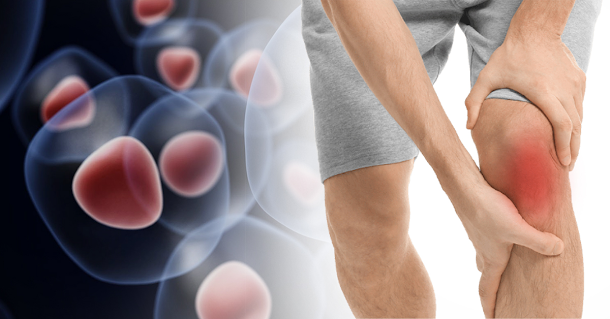Stem Cell Therapy for Knee Pain: What Patients Should Know
Knee Stem cell therapy has received a lot of attention in recent years, but what exactly is it? Is it an effective treatment for knee pain and how does it work?
Knee pain affects about 25% of persons in the United States and can afflict people of any age. While physical therapy and prescription drugs can adequately cure minor pain, more severe pain may necessitate surgery.Stem cell therapy may be an alternative for people who are struggling to manage knee discomfort but want to postpone knee replacement, an orthopedic expert wants to educate patients to understand stem cell treatment, its benefits and drawbacks, and how it can help some people find comfort.
What exactly is stem cell treatment?
Stem cell therapy, also known as orthobiologic treatment for treating orthopaedic disorders, is a type of medical treatment that employs stem cells and growth factors to alleviate pain.
Most cells in the human body have only one function. A red blood cell, for example, cannot perform the same function as a skin cell. Stem cells, on the other hand, are a type of cell that has the ability to split into any other form of cell found in the body, such as a liver cell or a heart muscle cell. That means they can do a variety of tasks.
Scientists in some facilities have been able to help some patients regenerate damaged tissue using stem cells. While that success has so far been limited to laboratory settings, Expers says doctors are currently investigating whether it may be used to assist everyday people regrow missing tissue. This is due to the fact that we still don't know much about stem cells and how they can be controlled to work in different sections of the body.
What exactly is knee stem cell therapy?
You may be sceptical about stem cells if you've heard about the debate around how they're obtained. Some stem cells are derived from donated blastocysts (early-stage embryos) that are just a few days old, but these are not used for ortho biologic treatment.
Instead, ortho biologic therapy for knee pain most typically involves stem cells extracted from adult patients' bone marrow and tissues.
A doctor will extract stem cell samples from different places of your body and re-implant them into a wounded location during treatment. For knee discomfort, this could entail extracting bone marrow or adipose tissue cells and putting them into knee joints.
Does stem cell therapy work?
Stem cell therapy may aid with pain relief, but it is not a cure-all for any disease or condition. Be sceptical of any doctor or clinic who says stem cell therapy can entirely reverse or repair an orthopedic disease.
The FDA had only approved stem cell treatment for a few conditions as of 2020, including several malignancies and blood problems. However, reinjecting a patient's own stem cells back into their body as a therapy for orthopedic needs is approved.
What are the potential advantages and disadvantages?
Stem cell therapy and orthobiologic treatment are still in their infancy. We're still learning a lot about their applications, advantages, and disadvantages. We don't know whether it helps for cartilage regeneration or mending spinal cord injury.
Regardless, the doctor adds that many patients find orthobiologic treatment to be beneficial for their knee discomfort, even if it does not repair bone or cartilage loss. Some of the advantages may include:
Pain relief from osteoarthritis or previous injuries
Joint stiffness has been reduced.
Pain medication dependence is reduced.
increased mobility
Find Out More About Stem Cell Therapy
Many people get relief from knee pain with stem cell therapy when combined with lifestyle changes and other treatments. However, it is critical to examine your options and risk factors with your doctor in order to establish which treatment approach is best for you.
Before you proceed with a stem cell injection, ensure that your doctor is a board-certified orthopedic surgeon.
Schedule an appointment with best chiropractors now to learn more about stem cell therapy for knee pain. There are also virtual appointments available.





Comments
Post a Comment